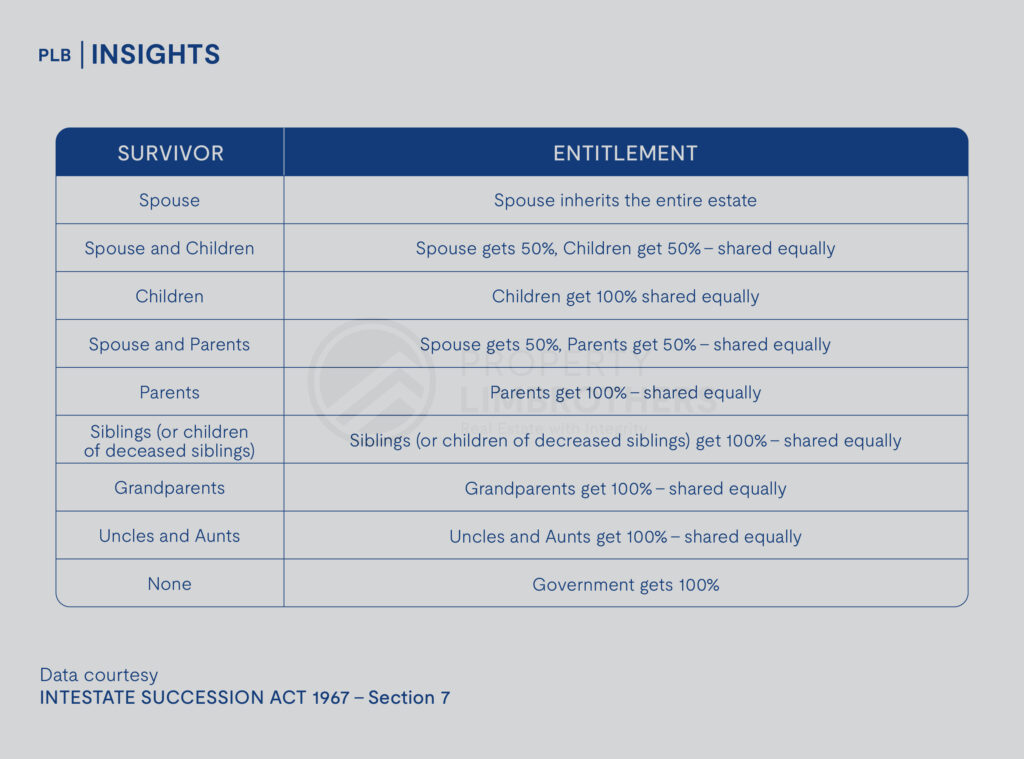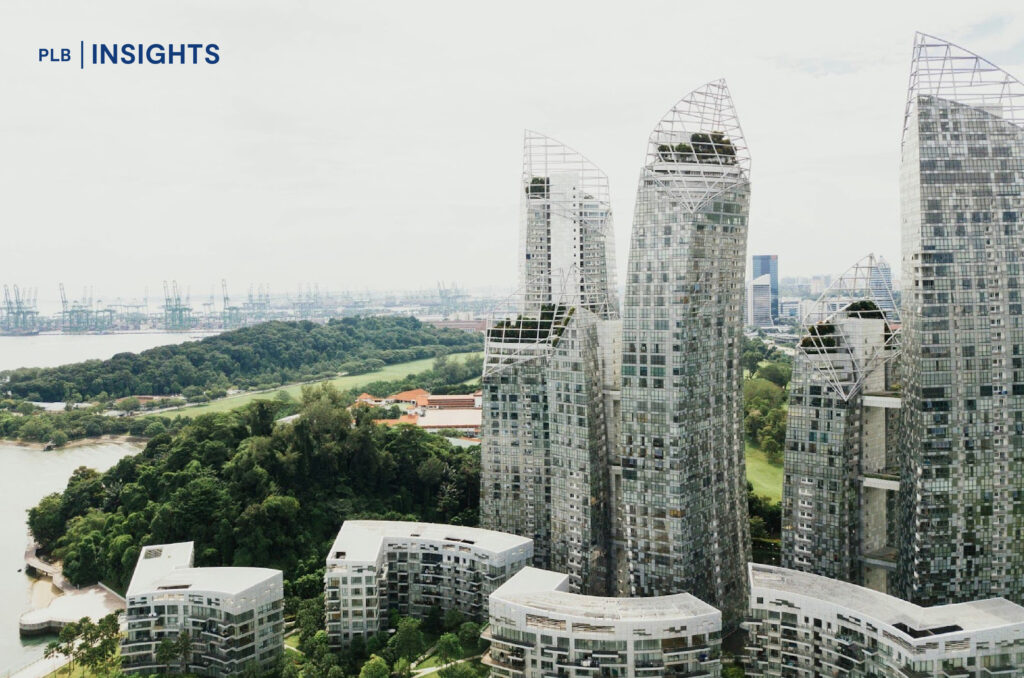
The process of inheriting a property can be an intimidating one, with various stipulations, rules and regulations to adhere to. From the different types of property that can be inherited to all the taxes involved, there is a wide range of factors to consider. By gaining a thorough understanding of the legal framework that governs property inheritance in Singapore, beneficiaries can ensure a smooth transition of properties while preventing any potential conflicts or disputes that could arise.
In this article, we will explore the complexities of inheriting property in Singapore. We will provide you with a guide to understanding the types of property ownership for the distribution of inheritance, the legal process, tax implications and common challenges beneficiaries face throughout the process of inheriting property.
Property Ownership Types
There are different types of ownership structures individuals can hold in Singapore. Each of these comes with its own implications for inheritance and the transfer of ownership. Some common types of property ownership include sole ownership, joint tenancy, and tenancy-in-common.

Sole Ownership
Sole ownership of a property refers to one individual holding the complete ownership rights of a property. In the event of the owner’s passing, the property is transferred to the next of kin according to their will, or based on the rules of intestacy in the Intestate Succession Act, which we will discuss in this article.
Joint Tenancy
Joint tenancy is a type of co-ownership wherein two or more individuals collectively own equal interests in the entire property. In the event of the passing of one of the joint tenants, their share is automatically passed onto the surviving joint tenants, bypassing the deceased owner’s will.
Tenancy-in-Common
Another form of co-ownership is the tenancy-in-common. Under this type of ownership, each owner holds a distinct share of the property. In the event of the passing of one of the owners, their share of the property is distributed per their will. In the case of there not being a valid will, the rules of intestacy apply.
Legal Framework Governing Property Inheritance
The legal framework that primarily governs all property inheritance in Singapore is referred to as the Intestate Succession Act. Also known as intestate law Singapore, the framework sets out the laws that dictate how a deceased person’s assets, including real estate, should be distributed among surviving family members in the absence of a will.
The act establishes a hierarchy of beneficiaries who are entitled to inherit the deceased person’s assets in a particular order in the event of there being no valid will. The rules are as follows:

Please take note that the rules of the Intestate Succession Act in the table above do not apply to Muslims. In the case of a deceased Muslim in Singapore, the property is distributed under Muslim Inheritance Law and the Syariah Court.
Inheriting Property: The Distribution Process
Obtaining Paperwork
The legal process for transferring ownership of inherited real estate properties starts with the next-of-kin of the deceased person obtaining a Grant of Letters of Administration.
If the deceased person leaves a will, the next of kin must obtain a Grant of Probate, which is a formal recognition by the court that the deceased person’s will is valid and can be used for the distribution of inheritance. The grant confirms that the individual mentioned in the will has the legal authority to act on behalf of the deceased person’s estate.
Transferring Ownership
Once the Grant of Probation or Letters of Administration is obtained, the executor can get started with the process of transferring ownership of the inherited properties to the beneficiaries. This process involves updating property titles, notifying all relevant authorities and completing all the documentation that is required. Before the property is distributed, the executor also must settle any outstanding liabilities, debts and taxes owed by the deceased person. Once all liabilities are settled, the property can then be distributed to beneficiaries. Beneficiaries may be required to sign documents and update property records to reflect the change in ownership.

Tax Implications
Inheritance Tax
An inheritance tax is a tax levied on the total market value of all assets owned by the deceased, at the date of death (regardless of a will). In Singapore’s context, the inheritance tax was abolished in 2008. As a result, there is no inheritance tax imposed on the transfer of assets, including properties, from a deceased person to their beneficiaries here.
Property Tax
Property taxes are an annual tax charged on the ownership of properties. The amount payable is based on a portion of the annual value of the property, determined by the Inland Revenue Authority of Singapore (IRAS) on the basis of factors such as location, size and use of a property. When inheriting property, beneficiaries are responsible for paying the property taxes on the inherited properties every year.
Stamp Duty
Stamp duty is a tax levied on legal documents, which include property transfers and leases. The most common types of stamp duties for properties in Singapore include the Buyer’s Stamp Duty (BSD), Seller’s Stamp Duty (SSD), and the Additional Buyer’s Stamp Duty (ABSD).
When inheriting property, beneficiaries may or may not be subject to paying stamp duties depending on the circumstances. For instance, if a property is inherited in accordance with a will, the Intestate Succession Act, or the Administration of the Muslim Law Act, beneficiaries are not subject to these stamp duties.
Under any other circumstances, the inherited property is considered to be a gift or a sale transfer and could be subject to BSD or ABSD. In the event that the inherited property is held as a tenancy in common, or if beneficiaries wish to sell or transfer their inherited property to a third party, stamp duty is applicable to the sale or transfer and will be determined by the market value of the property at the time of transfer.
Factors Affecting Inheritance
There are a few factors that can affect the process of beneficiaries inheriting property in Singapore where they may legally be allowed to receive property without the right to keep it.
Existing HDB Ownership
If beneficiaries have an existing HDB ownership, they cannot legally keep an inherited HDB property. In this instance, beneficiaries must make a decision to sell one of the flats within 6 months.
If beneficiaries own private property and receive an HDB flat that was purchased after 30 August 2010, they will not be able to keep the property legally. For flats that were purchased before the mentioned time period, the MOP must be met. If it is not, then beneficiaries are required to live in the inherited HDB flat instead of their private property.

Inheriting Private Property
When inheriting a private property, there are certain conditions and requirements that are applied to beneficiaries depending on whether they are foreigners or Singapore citizens.
For foreigners who inherit private property, getting the approval of the Singapore Land Authority (SLA) is required to legally keep the inherited property.
For Singapore citizens who own HDB flats and then inherit private property, the Minimum Occupation Period (MOP) must be met for beneficiaries to keep the inherited property.

Common Challenges
Inheriting property in Singapore can come with various challenges for beneficiaries, ranging from the legal complexities of the inheritance process to the familial disputes and conflicts that may arise as a result of a will or the rules of intestacy.
Time
The process of inheriting a property can be a time-consuming journey. From obtaining the necessary grants and letters to managing any estate administration including the settlement of debts, distribution of assets, and handling any legal documentation can take several months to complete. Moreover, each step of the process requires careful attention to detail and compliance with any legal requirements.
Family Disputes and Conflicts
Certain family members could have conflicting interests or different expectations regarding the inheritance of property. This can cause disagreements and disputes to arise over the distribution of assets. Additionally, inheritance conflicts such as claims of unfair treatment between beneficiaries or challenges to the validity of a will can create tension between family members. While this can be sorted out personally, in many cases, this can also lead to legal action required to deal with disputes.
Complexities of Legal Procedures
Another challenge that can come up in the process of inheriting property is dealing with the complexities of legal procedures. Inherited properties require beneficiaries to navigate complex tax laws and other legal obligations that can become overwhelming to manage and carry out. These obligations require careful planning and professional advice to ensure beneficiaries are complying with laws.
Property Management and Maintenance
Inherited properties may require ongoing maintenance, upkeep and management. This can be a logistical and financial challenge for beneficiaries as they have to manage the property maintenance, repairs, and insurance coverage. Additionally, beneficiaries may need to seek financial advice to develop an estate plan and investment strategy that aligns with their needs and goals for the inherited property.

Closing Thoughts
Ultimately, inheriting property in Singapore is a significant milestone that requires careful consideration, planning, and adhering to legal requirements. Beneficiaries inheriting property in Singapore should be aware of the legal complexities, tax implications and the process of receiving the property. By addressing these challenges proactively and with professional guidance, beneficiaries can overcome obstacles and ensure a seamlessly successful inheritance process.
If you have further questions about inheriting a property, or require a second opinion to help you navigate the process, feel free to reach out to us here. Our team of seasoned consultants will be glad to offer their insights to help you reach an informed decision.
Until then, see you in the next one.







